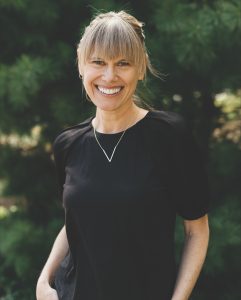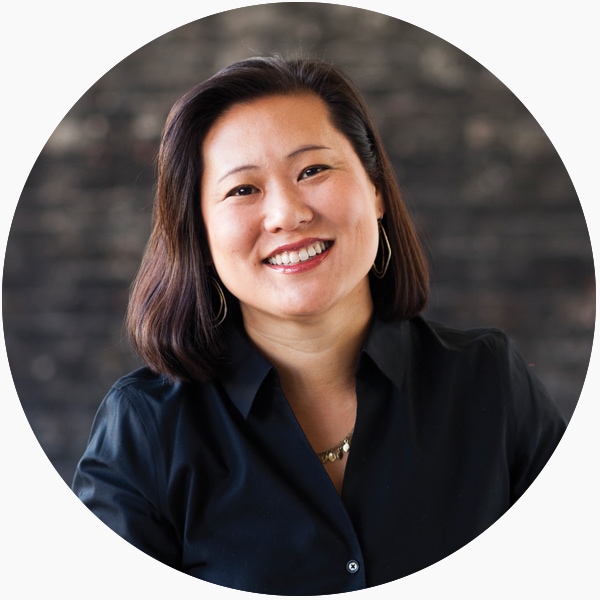5 Minutes with Vickie Reddy
by Jill Riley | February 7, 2021
photo Karl Clifton-Soderstrom
In the School of Restorative Arts (SRA) at North Park Theological Seminary, free and incarcerated students study together to earn a master’s degree in restorative justice ministry. This unique program is designed to prepare individuals for ministries of restoration in contexts where individuals are susceptible to violence. The school began at Stateville Correctional Center for men, nearly 50 miles outside of Chicago. In the fall of 2021, a new site opened at Logan Correctional Center for women in southern Illinois.
The Companion talked with Vickie Reddy, the assistant director of the School of Restorative Arts, about her vision for SRA students and the new site.
Why did the School of Restorative Arts expand to Logan Correctional Center?

The Illinois Department of Corrections asked us to expand our programming in early 2020. We were eager to expand to other facilities so the invitation came at a good time. We met with the wardens at Logan as well as some of the women there to talk about a master of arts degree in restorative justice ministry. We shared what we’re doing at Stateville Correctional Center, the men’s prison, where we have been offering classes since 2015.
The education staff at Stateville and the wardens have such positive things to say about our program, our students, and how they interact. We all want our students to be agents of change within their context. We want them to be able to do that in their housing units or on the yard or wherever they are. And I think the Illinois Department of Corrections recognizes that and is committed to working with us on that.
What was the response of the women at Logan?
The prospective students at Logan were excited about the program with some trepidation. There is not a lot of programming for long-term incarcerated individuals, so the possibility was exciting. However, they have experienced many programming potentials that fail to come to fruition, so they weren’t sure if we were going to actually follow through or not. They told us about the sorts of things they wanted to learn. Their needs centered around how to have good relationships with family members, as well as issues around domestic violence. Too often people with long-term sentences can be overlooked when it comes to programming, because if you’re in for 20 to 30 years to life, why would you bother with programming? They were really excited that we were coming.
How did you launch a new program during the pandemic?
It was an extremely difficult year for everyone who is incarcerated, including our students. Everything was in extreme lockdown and living conditions were terrible. There were no visits or contact with their families at all. It’s likely that all of our students have had Covid, some of them several times. We lost two of our students to Covid at Stateville.
Following a yearlong wait due to Covid, in March we finally were able to interview potential SRA students at Logan via Zoom. We accepted 20 women into the program and began with a preparatory writing class that they all took through correspondence. In August, they started their master’s degree, first through correspondence. We started offering in-person classes in early October. Right now there are still some restrictions and the class is split into two groups because they can’t all be together yet. In spite of all the precautions, we are so excited to be there after a year and a half of planning.
How many students are currently enrolled in SRA?
We have around 100 students between the two facilities, as well as outside students on top of that. Outside students are enrolled either in undergraduate programs at North Park University or seminary students in North Park Theological Seminary’s School of Restorative Arts. Because of the pandemic, our teachers go into the facilities, and outside students participate via Zoom right now.
What do SRA students bring into the community of the classroom?
They bring a hunger that we don’t see in many other academic spaces. For so many of these women, they haven’t had these opportunities before—before prison and especially not since they have been incarcerated. There is an eagerness to get every single bit out of the program they can. They bring a willingness to listen to one another and respect one another. For those of us on the outside who have been part of these learning communities, it’s such a different perspective from what we get in any other seminary classroom. For me personally, doing exegesis with two incarcerated classmates and learning from them is such a rare classroom experience.
What are your hopes for the future of the program?
We are committed to the holistic flourishing of our students and our support of them as they move into ministry in whatever context they are in. We also desire to be a strong reentry pathway for their return to society. My greatest hope is that we would significantly impact our broken criminal justice system, taking seriously the commission we are given in 2 Corinthians 5:17-19 to the ministry of reconciliation: “If anyone is in Christ, the new creation has come: The old has gone, the new is here! All this is from God, who reconciled us to himself through Christ and gave us the ministry of reconciliation: that God was reconciling the world to himself in Christ.”














